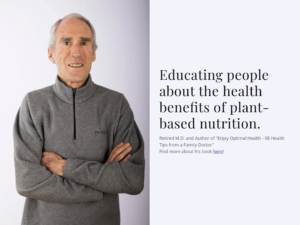 HISTORY OF THE SCIENCE BEHIND MAKING JUNK FOOD ADDICTIVE
HISTORY OF THE SCIENCE BEHIND MAKING JUNK FOOD ADDICTIVE
Health column by Dr. Greg Feinsinger. Champion of Whole Food Plant Based Living and righteous person.
“I have saved the lives of 150 people by heart transplants. If I had focused on preventive medicine earlier, I might have saved 150 million.” Christiaan Barnard, M.D., who performed the first heart transplant.
In 2017 the American Heart Association proclaimed that 400,000 lives a year would be saved if Americans stopped eating food that is high in salt, sugar, fat, and refined carbs—in other words junk food. Food companies are clearly complicit in these deaths, because they spend millions on figuring out how to make their products more addictive in order to increase their profits. For example, in the 1980s Frito-Lay–makers of products like potato chips, Fritos, and Cheetos—was spending up to $30 million a year on research that resulted in conclusions such as “people like a chip that snaps with about four pounds of pressure per square inch.”
One of the speakers in the virtual PCRM (Physician Committee for Responsible Medicine) conference on Nutrition in Medicine last month mentioned an eye-opening article by Michael Moss that appeared in the New York Times magazine on Feb. 20th, 2013 titled “The Extraordinary Science of Addictive Junk Food.” The full article can be accessed on the internet. What Dr. Moss found over four years of research “was a conscious effort—taking place in labs and marketing meetings and grocery-store aisles—to get people hooked on foods that are convenient and inexpensive” but terrible for human health.
In 1999, C.E.O.’s of food companies such as Kraft, Nabisco, General Mills, and Coca-Cola met because they were being blamed for the obesity and diabetes epidemic in America. The C.E.O.’s admitted their culpability at this meeting but the outcome was to continue business as usual; profits won out over the health of Americans.
Following are some examples of how food companies engineer profits over human health:
- Yoplait transformed relatively healthy traditional unsweetened breakfast yogurt into a high sugar “veritable dessert.” To increase profits even more they developed a squeezable tube version of their sugary product aimed at young children.
- Food scientists engage in “optimization” of food products—just the right amount of salt, sugar, fat (oil), refined carbs, food dyes, preservatives, and other unhealthy ingredients to create maximum craving, otherwise known as the “bliss point.” This results in products such as Prego spaghetti sauce–a half cup has over 2 teaspoons of sugar and 1/3rd of the recommended daily allowance of salt.
- They determine the “mouth feel” of products—“second only to the bliss point in its ability to predict how much craving a product will induce.” Unfortunately, fat enhances mouth feel.
- In the 1980s meat consumption dropped 10 percent following the discovery of the link between meat and heart disease. Oscar Mayer’s profits dropped so they came up with “Lunchables”—convenient prepackaged lunchmeat, cheese, and crackers that busy mothers could send their kids off to school with. To increase sales further they followed the rule “when in doubt add sugar,” and added dessert plus a sugary drink. Eventually they developed the “Fun Pack,” that included a Snickers bar, M and M’s, or a Reese’s Peanut Butter Cup. Eventually the product morphed into Maxed Out, that contained close to the daily allowance of saturated fat for kids, 2/3rds of the daily max of sodium, and 13 teaspoons of sugar. One article about Maxed Out noted that “the most healthy item…is the napkin.”
- Food scientists developed the concept of “vanishing food density.” If for example if a Cheeto melts in your mouth, “your brain thinks that there’s no calories in it… and you can just keep eating it forever.”
- Food companies use the word “toasted” instead of “fried” on products because it has a healthier connotation, even though the food is the same. Another favorite marketing ploy for a new product is to claim “less sugar,” when the product still has lots (the ideal amount of added sugar is zero).
Food taxes, like tobacco taxes, are effective at changing behavior, but unfortunately the junk food lobby is very effective at preventing such laws. How do junk food scientists and marketers and C.E.O.’s live with themselves? According to Dr. Moss’s article, a few of them can’t, and quit the industry.
Leave a Reply